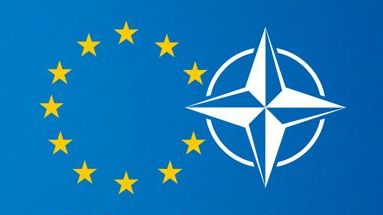
From Rabah Ghezali, the Huffington Post : The conventional wisdom at the end of the Cold War was that NATO needed to find an appropriate common threat to replace the former Soviet Union. But instead of focusing on a single potential danger, NATO has gradually changed its purpose from collective defence and deterrence to a broader set of security tasks. After September 11, 2001, the new range of threats to members lacked the clarity of earlier symmetrical diplomacy with recognised governments. This rupture raised questions about NATO’s evolution.
What factors have driven its transformation? For some observers, recent changes are simply ad hoc responses to external events (such as humanitarian crises) and the changing international distribution of power. Beyond this, however, it is important to remember that NATO’s member states determine its strategic agenda. Members perceive changes in the security environment quite differently for a host of reasons, including the ebb and flow of domestic politics. As a result, conflicting visions of the organisation’s geographic and functional dimensions have been disputed and no long term strategic consensus has emerged.
It seems inevitable that NATO will lack direction for as long as its lost common purpose remains unaddressed. Its dilemma is bound up with structural changes in transatlantic relations and the world order, not least the difficult emergence of the European Union as a strategic player with its own policies and priorities. Just as NATO has become active in crisis response operations, the EU has claimed this policy space with its Common Security and Defence Policy (CSDP).
Tension with CSDP goes some way towards explaining the lack of consensus regarding NATO’s strategic goal. A half-baked European Security policy has made a half-reformed NATO an inefficient international player. Moreover, relations between the two organisations have often been hampered by contradictory US and European policies — contradictions that reflect internal divisions and uncertainty about foreign policy. Washington demands a more actively engaged Europe that is willing and able to bear a greater share of the burden of upholding international security. But the US has been reluctant to accept a stronger and more independent military and political role for Europe. Its unrealistic expectation is that European allies take more responsibility without corresponding powers in decision-making. Conversely, Europeans demand a stronger role in decision-making, but are unwilling to expand their capabilities. The result is that Europe’s unclothed Emperors frequently deploy an interventionist and global rhetoric as tuned-in to their historical sentimentalism as it is at odds with their capabilities and appetite for intervention. Anti-interventionist public opinion and drastic defence budget cuts across Europe suggest that this problem will only become more deeply entrenched for a generation.
Image: eu%20nato%206%2021%2010%20pic.jpg
